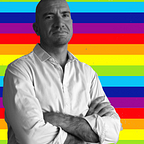Two Ways in which Healthcare is Changing Right Now
Loads has been written on how Covid19 is accelerating the inevitable disruption in healthcare. The crisis has caught us unprepared and exposed the fatal flaws of our system. Then, social distancing has put additional pressure on the virtualization of services that have always been regarded as “in person”.
Like everything else, Healthcare has been forced into rapid change mode.
RELEVANT: 5 Important Trends in Healthcare
Several other factors are further supporting these changes. Smartphone penetration is one — there is a critical mass of powerful phones out there. Pretty much everyone on the planet either has access to the internet or can gain access if needed. Smartphones are packed with useful features — sensors of all sorts, competent cameras and microphones, in addition to powerful computing power and huge memory.
To top things up, we now have extensive data on what actually works and what doesn’t. We know so much about important correlations between lifestyle choices and health outcomes. As a consequence, providers and payers are shifting their thinking — and business models — based on actual data, leading to the most radical transformation Healthcare has experienced in many decades
The combined pressure form the pandemic and opportunities unlocked by tech reaching critical mass (i.e. smartphone penetration) is a very powerful catalyst for fundamental change in healthcare.
Here are only two of the things happening right now:
1. Routine tracking of biomarker is getting normalized
As lifestyle choices and healthcare get further blended into our “health” framework, expect insurers and traditional payers to extend their coverage to what we have been used to think of as “pure” lifestyle choices. This means that They’d be happy to cover your Strava subscription or your Peloton. They will gladly subsidize upgrades to your home, such as A/C, water filters or a better mattress. This will lead to further integration of medical devices into daily devices such as your smartphone (and/or smart home).
Until now, one hard limiter to this trend has been the actual limitations of sensors. There are only so many specialized sensors that can be added/ connected to a phone, at scale.
The biggest insight is that we may not even need any additional sensors.
Smarter AI models that find patterns and signatures in regular data can leap-frog the need for sensors altogether and they can provide us with better and better insights based on cross-referencing data that we are already generating and measuring. (I for example, am pretty excited about acoustic data).
2. Provider-Driven Health Care
Healthcare has historically been patient-driven. What typically happens is someone feels sick and they go to see a doctor. The healthcare experience is triggered by the patient.
The problem with this is that at that point the Patient usually really needs medical attention, which means that they are willing to put up with the most atrocious experience in order to receive it. This means that healthcare provider have no real pressure to improve the user/ patient experience.
More importantly, it also means that often the medical intervention happens too late — at a time when symptoms are already serious. This has a negative impact on both the health outcomes as well as the costs of the whole thing.
With access to continuous data streams (and longitudinal biomarker data), AI-powered platforms can identify disease signatures before people would become aware of any symptoms.
This could allow providers to drive/ trigger an intervention and thus improving outcomes while reducing costs for everyone involved.
How would this look in practice? Perhaps you will receive a notification on your phone that you should see a doctor? That you may be at risk of such and such disease? Perhaps AI will be so good that you may directly receive a prescription/ treatment regime straight on your phone. The AI will then monitor your progress throughout the treatment.
